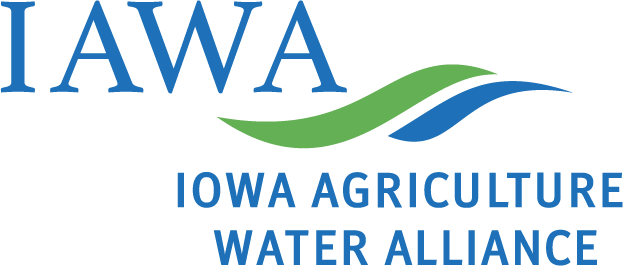By Rebekah Jones
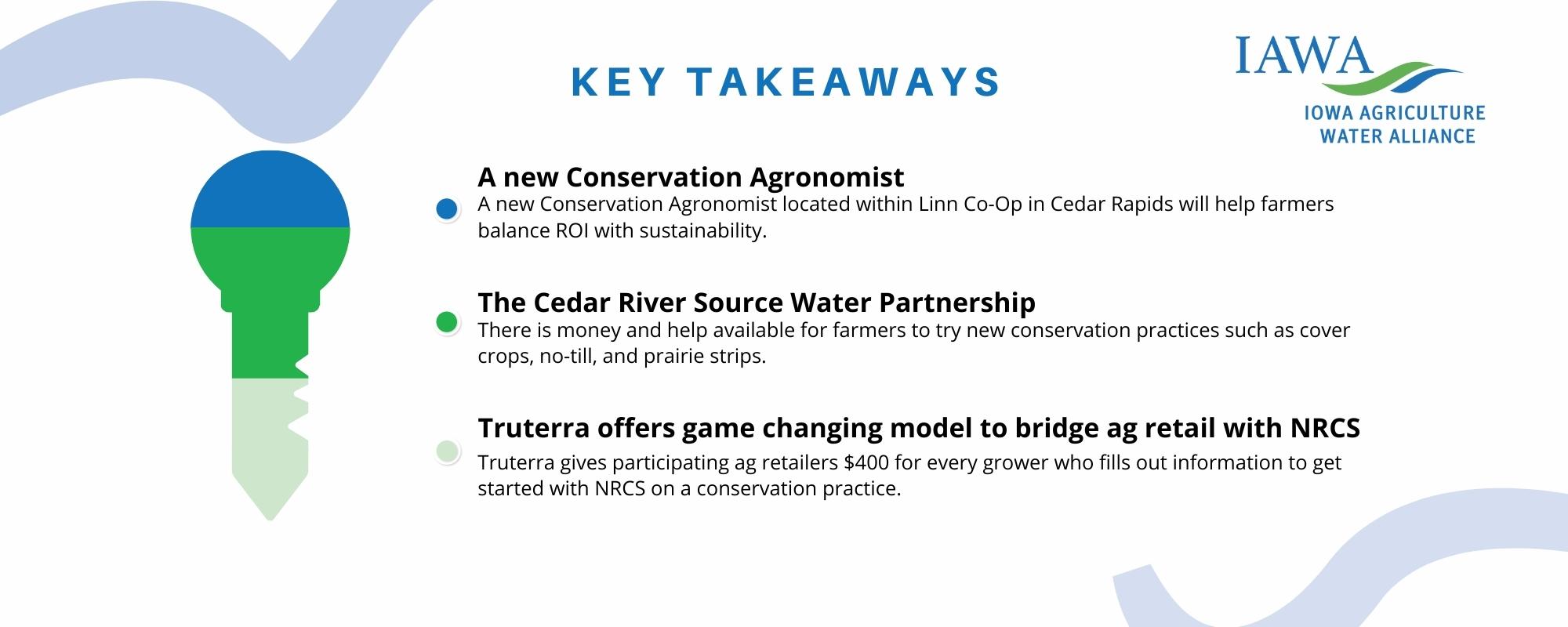
Cedar Rapids, IA (IAWA) – Evan Brehm describes his new job as Conservation Agronomist for Linn Co-Op and the Iowa Soybean Association as his dream job. It’s a brand-new position that the Cedar Rapids area hasn’t had before.
The role of a conservation agronomist is to provide agronomic advice and support to ensure farmers are successful as they implement conservation. Brehm helps farmers make decisions about their farms that are good for ROI and water quality.
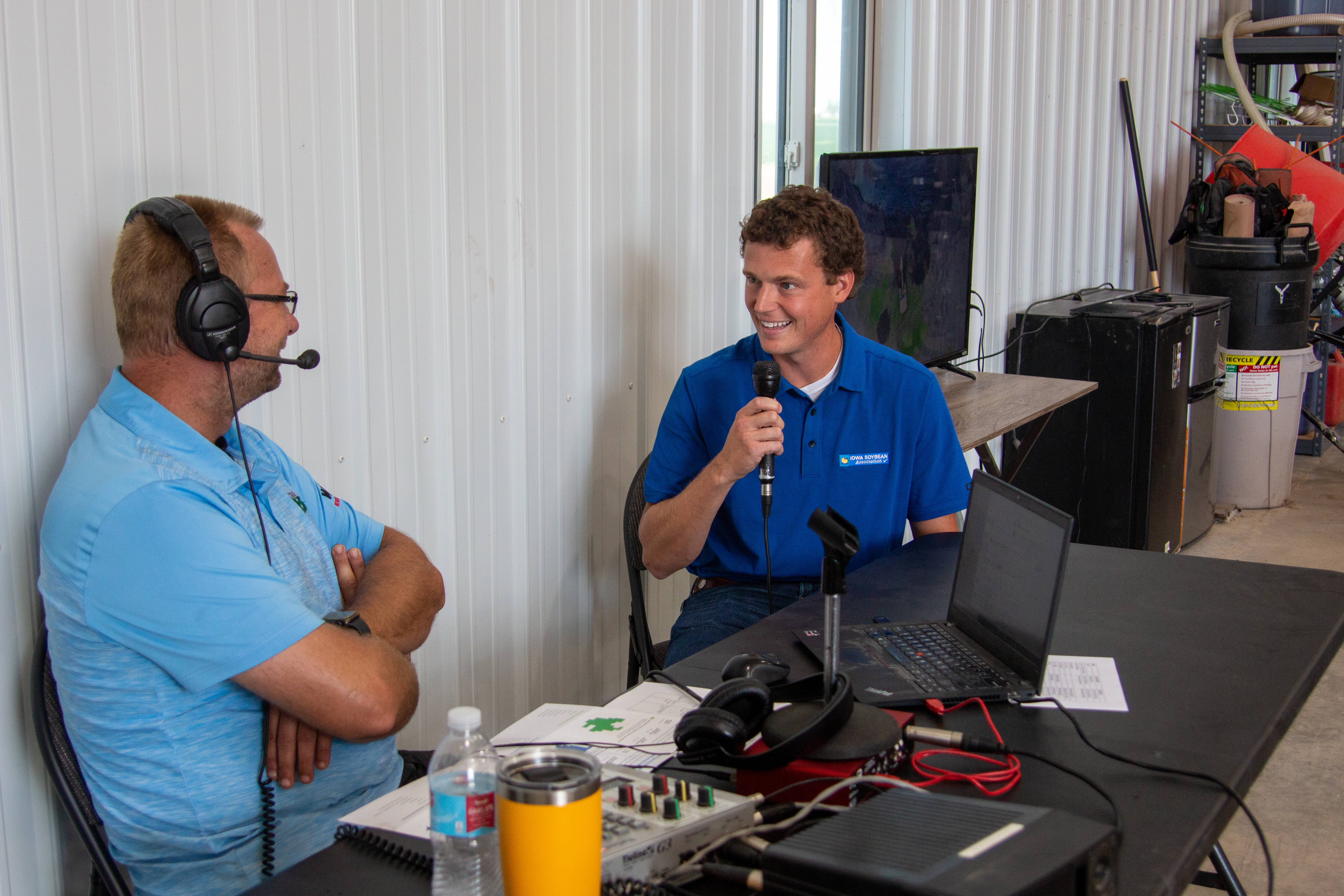
Long term profitability is often one of Brehm’s favorite conversations to have with farmers.
“As we use more sustainability practices like cover crops or no-till, our soils become more resilient. With more resilient soils comes increased soil organic matter. By increasing soil organic matter, we can enhance nutrient cycling, suppress weeds which makes herbicides more effective, reduce nitrate into our streams, and sequester carbon,” he said. “Conservation can pay!”
Brehm works with farmers who are newer to conservation practices, and those who have already transformed their farms – like Jim O’Connell, who lives just outside of Cedar Rapids.
“I moved to covering all my acres with cover crops after driving to Ames one Friday in the winter and my wife, Barb, and I noticed all the black soil in the ditches on the snow. I thought – we need to do something to save that soil. I also thought if our kids wanted to farm, I want the land to be left better than when I started,” said O’Connell.
O’Connell and his wife run a corn and soybean operation along with 35 head of stock cows. He took over the family farm in 2004. They strip till the corn and no-till the soybeans. Their cover crops are a mix of winter wheat and cereal rye planted right after harvest. In the spring they plant green (right into the growing cover crop).
O’Connell’s acres, and Brehm’s service area, falls in the Cedar River Watershed, where a new cost-share program will be helping farmers pay and plan for conservation practices in order to protect drinking water.
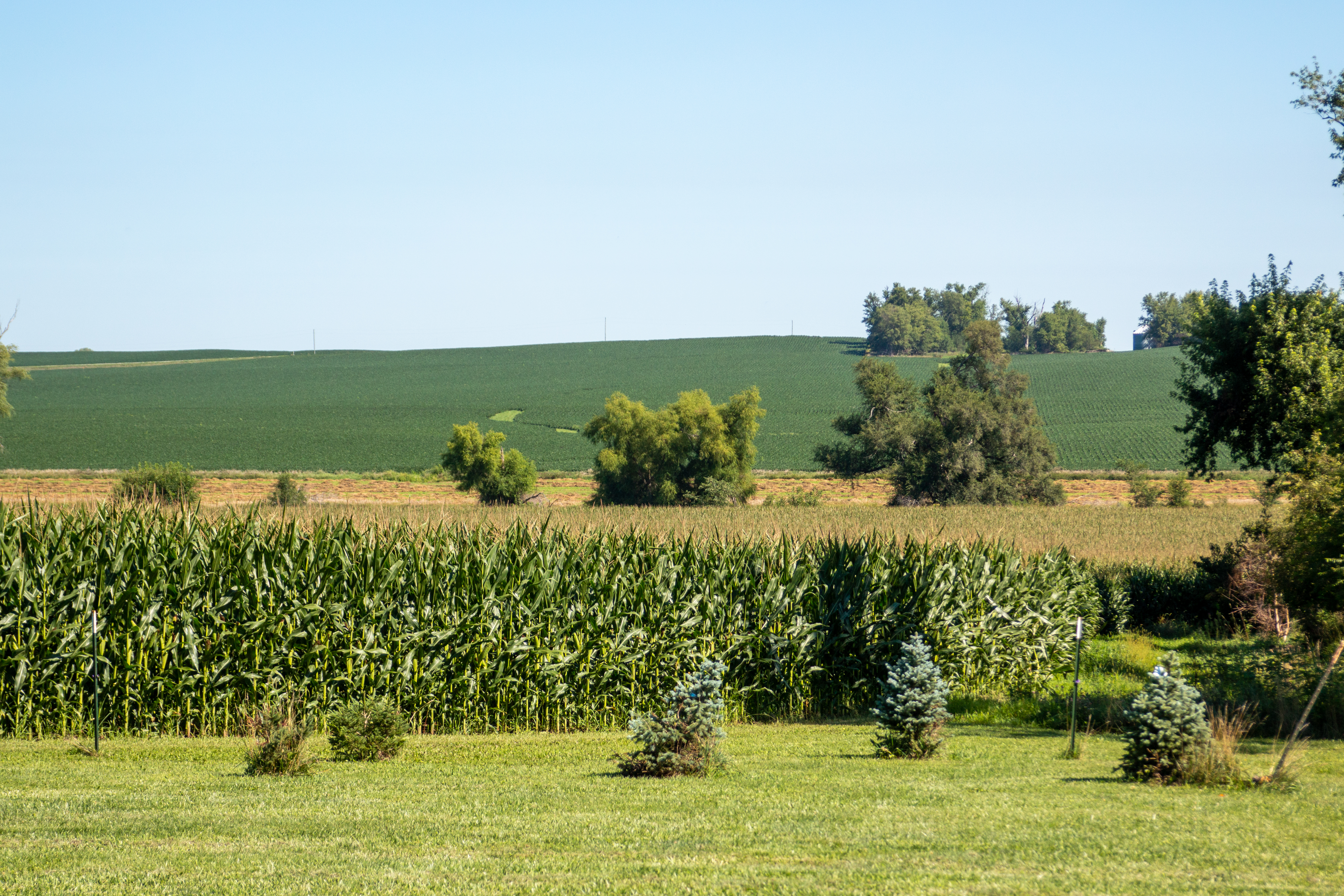
The Cedar River Source Water Partnership
It’s called the Cedar River Source Water Partnership (CRSWP) and is led by the city of Cedar Rapids. The Iowa Agriculture Water Alliance is providing $175,000 toward the conservation agronomist position and additional communications support for this major project.
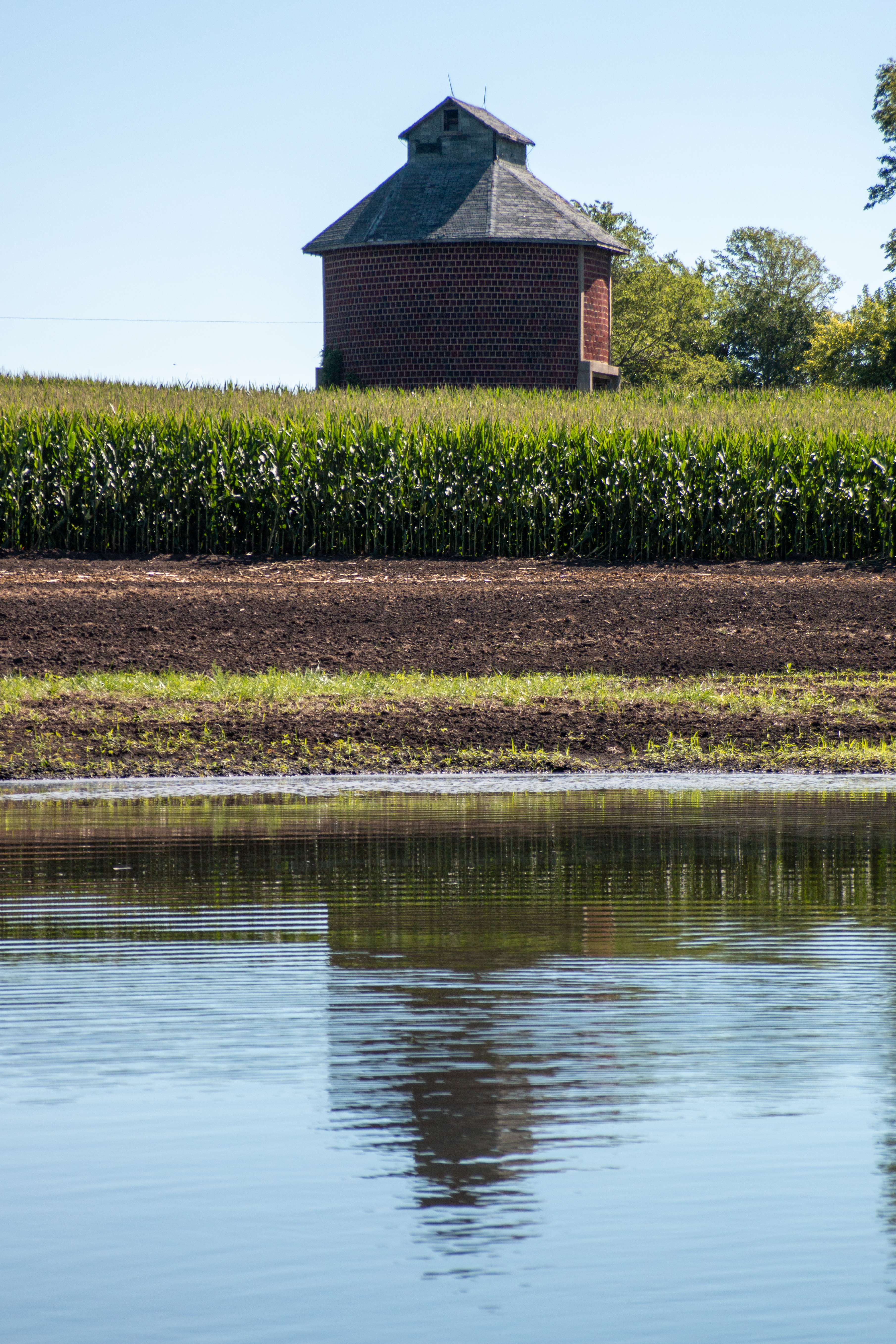
“Engaging the ag retail sector and leveraging farmers’ special relationships with their agronomists are key to achieving the goals of the Iowa Nutrient Reduction Strategy,” said IAWA Executive Director, Sean McMahon. “Conservation Agronomists are a trusted source of information for not only their farmer customers, but for other farmer-facing staff in the Ag retail sector.”
Conservation Agronomists train other certified crop advisors (CCAs) and sales agronomists in conservation practices so they can help identify farmers that are interested in conservation practices, and refer them back to the Conservation Agronomists to enroll them in cost-share programs, according to McMahon.
The CRSWP is expected to prevent more than 1 million pounds of nitrogen and nearly 30 thousand pounds of phosphorus from entering local waterways, which is critical to stop rising nitrate levels in the Cedar River, which provides drinking water to hundreds of thousands of people.
The CRSWP provides cost-share from the U.S. Department of Agriculture Natural Resources Conservation Service (NRCS) for farmers so they can try conservation practices at a lower cost. Additional contributions from the Iowa Department of Agriculture and Land Stewardship and other partners cover 100 percent of the cost for some practices. Implementing Cover crops, no-till, wetlands, bioreactors, saturated buffers, and prairie strips is a proactive way to protect water and help farmers.
“We greatly appreciate all that farmers are currently doing to improve their farming practices. Agriculture is a cornerstone of the Cedar Rapids economy, with multiple industrial agricultural processors located in the city,” said Mary Beth Stevenson, Watersheds & Source Water Program Manager for Cedar Rapids. “We want farmers to know we are striving to do all we can to support their efforts, and that we are also taking measures to reduce excess nutrients leaving our city from stormwater and wastewater as well.”
“Bringing everyone together has a positive, lasting impact on the strength and resilience of our city,” echoed Cedar Rapids Mayor Tiffany O’Donnell. “The health of our waterways is critical to so much of what makes our city prosper.”
An ag retail partnership like never before
What makes the CRSWP different from other programs is the support that Truterra is providing to get more ag retailers involved.
Truterra, the sustainability business unit of farmer-owned cooperative Land O’Lakes, has an ag retail network of 29 local businesses such as Linn Co-Op where Evan Brehm is based, along with others like Heartland Coop, Landus, and Innovative Ag Services. They provide products, services, and expertise to help farmers be successful.
Participating Truterra ag retailers will also be providing conservation advice through the CRSWP, and connecting growers with NRCS so that they can get the financial benefits of the cost-share program.
“The retail network is so important to growers because that’s really their trusted advisor,” said Jennifer Wells. “Normally it’s someone they’ve worked with for years and they depend on for advice. So for those retailers to add value in promoting conservation programs is really important.”
Truterra is providing those retailers with $400 for every grower who fills out information to get started with NRCS. Truterra’s ag retail network partners will encourage customers within the Cedar River watershed who are already enrolled in the Truterra Insights Engine, a decision support tool that helps farmers improve their ROI and sustainability performance, to participate in the program.
“Truterra is excited to be a part of this innovative project along with six of our ag retail owners, the Iowa Agriculture Water Alliance and the City of Cedar Rapids,” said Jason Weller, President, Truterra. “Public-private partnerships such as this one deliver significant benefits, and by engaging with Truterra and our retailers, we are able to better measure and track those benefits not only in terms of soil health and water quality, but also by how these practice changes are leading to a more sustainable and resilient food system.”
Published on Aug. 8, 2022
